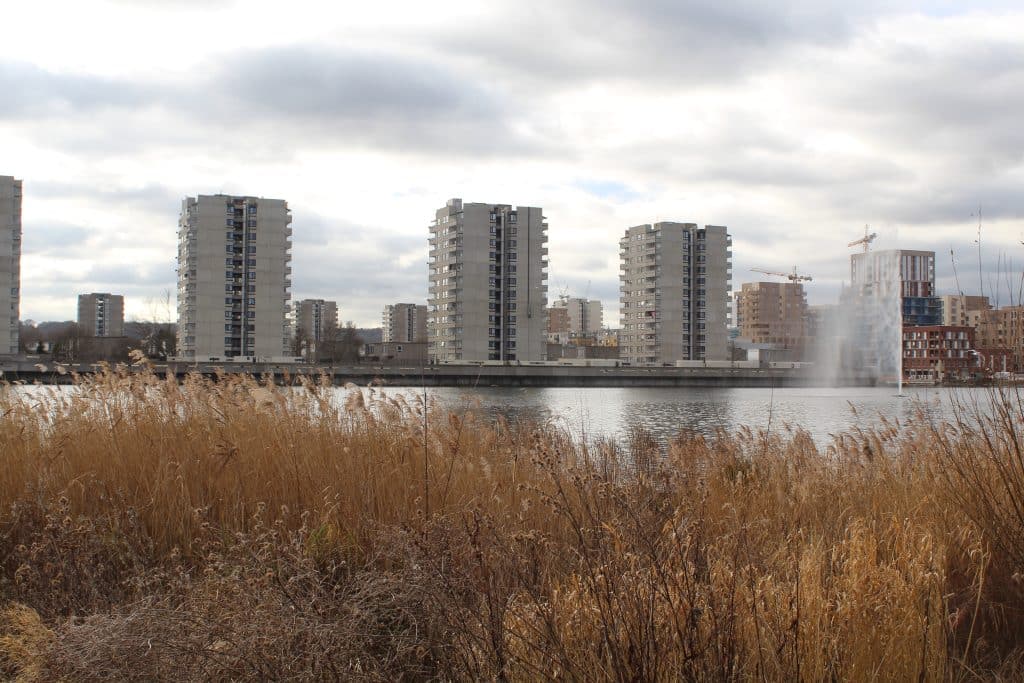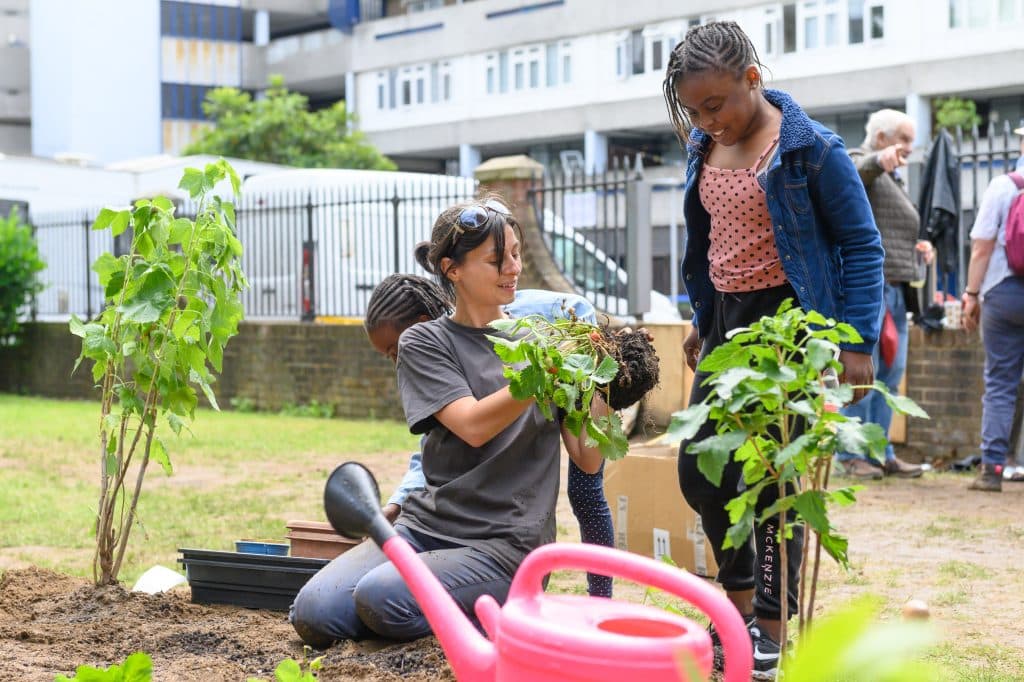In the dynamic landscape of community engagement, the CLEVER Cities programme in London has been a pioneering force since 2018, spearheading integrated urban design and nature-based solutions in South Thamesmead, an area in south-east London. As co-creation evolves into collaborative governance, the programme, led by a consortium including Groundwork London, the Greater London Authority, Peabody, and the Young Foundation, navigates the complexities of stakeholder involvement. This article delves into the critical role of trust-building in community engagement, drawing insights from the CLEVER Cities initiative and offering essential strategies to foster genuine collaboration and overcome historical skepticism.
—
This article was written by Dulcie Ruttley-Dornan and Sean Bradley
In the realm of community engagement, projects vary in size and duration, ranging from short-term endeavours to ongoing, multi-year initiatives and the co-creation component of these can evolve into collaborative governance structures over time. Critical to the early stages of co-creation is the meticulous analysis of context and the assembly of stakeholders. Understanding the nuances of the core communities and organisations involved in a project is integral, as these entities transition from historically top-down, command-and-control methodologies to more horizontally-organised models.
In certain contexts, participatory processes may be novel, while in others, prior encounters with development projects and municipal services may have fostered scepticism or apathy. Building trust within communities and mitigating negative perceptions necessitates time and a strategic approach.
Since 2018, the London CLEVER Cities programme has been at the forefront of co-creating integrated urban design and nature-based solutions in South Thamesmead. This initiative has explored diverse methods to engage stakeholders, both in intensive project development and broader public consultations. Facilitated by a partnership that includes Groundwork London, the Greater London Authority, Peabody, and the Young Foundation, the programme has amassed invaluable experience in community-led design processes while encountering varying levels of community receptivity.

More on the topic: CLEVER Cities: Building Urban Resilience Through Community-Led Decision Making
From these experiences, it is evident that building trust is paramount in all engagement contexts. To overcome a culture of participation characterised by scepticism and lack of trust, consider the following strategies:
1. Know your community & establish relationships
Gain a full-rounded understanding of the local community, prioritising the establishment of relationships through support of local groups and active participation in events.
2. Provide meaningful opportunities to contribute
Demonstrate a willingness to share power, engaging stakeholders at the highest levels. Navigate local institutional rigidity constructively and create an environment for early and frequent community input.
3. Work transparently with good communication and feedback
Ensure project information is accessible, and decision-making processes are transparent. Foster systemic and focused communication, promoting a general understanding of root issues. Follow stakeholder contributions with comprehensive feedback.
4. Help build community, capabilities, and confidence
Strengthen local networks by supporting collective goals. Facilitate the evolution of informal social groups into structured, empowered, and connected entities. Provide opportunities for knowledge exchange between community members and the technical team.
5. Overcome distrust and apathy with quick wins
Address past issues by consistently demonstrating progress in resolving local concerns. Identify and celebrate quick wins, establishing periodic milestones for collective celebration and a sense of accomplishment.
6. Work towards diversity of perspective
Highlight the value of representative diversity in perspectives. Forge partnerships that encompass a wide range of community experiences.

While it might not be possible to use all these strategies in every project, each helps bring the co-creation team together and reduces initial community resistance. Aim for a level of acceptance that lets the community assess the project based on its merits and without preconceived ideas.
In light of common superficial consultations and projects that falter before implementation, understanding and addressing past experiences becomes imperative. Take the time to comprehend the local culture of participation, rectify previous errors, and cultivate genuine relationships of trust with the community. This approach ensures that projects are assessed based on their potential to genuinely enhance the quality of life for community members.
You might also like: 5 Reasons Why Conservation Efforts Need to Support Community Livelihoods in the Decade Ahead
—
About the authors:
Dulcie Ruttley-Dornan is a writer and editor with over five years of experience producing strategic communications and campaigns in the not-for-profit sector. Both her personal and professional work is dedicated to creating positive social and environmental impact. Dulcie’s work focuses on volunteering and nature-based solutions as positive ways to connect communities and tackle social and environmental issues. Her portfolio consists of writing and editing articles, social media management, content creation and website development. Dulcie is a lifelong volunteer, having led development projects around the world, including Nepal and the Caribbean, she is a dedicated environmental activist and supporter of intersectional feminism.
Sean Bradley is a Sustainable Urban Designer focused on the development of healthy, socially cohesive neighbourhoods that act as the core of future sustainable cities. He is the CLEVER Cities Programme Manager for Groundwork London leading the community-based approaches for the collaborative design and implementation of Nature-Based Solutions (NBS) that bring multiple benefits to communities and ecosystems. He is also a coordinator of Pathway 06 of the UNFCCC programme Resilience Frontiers: Healthy Cities: (Eco)systemic Approaches that focus on innovative and transformative solutions critical to the development of healthy and resilient communities facing the challenges of preparing for and dealing with climate change.
Featured image: Richard Herald Photography
You might also like: What Are the Most Important Features of Sustainable Cities and Society?


















